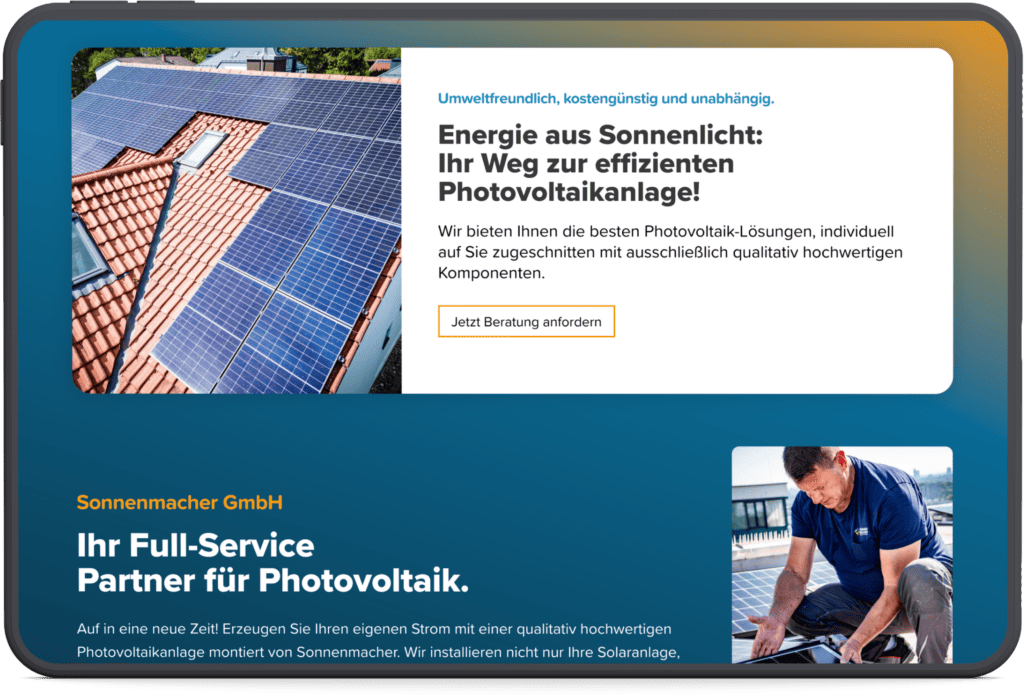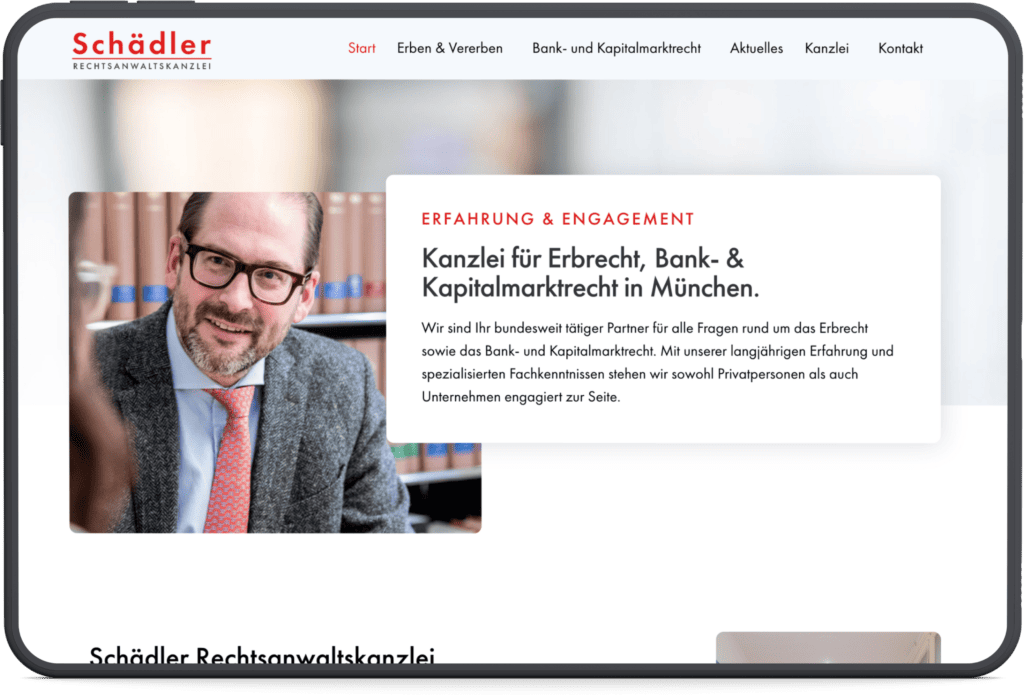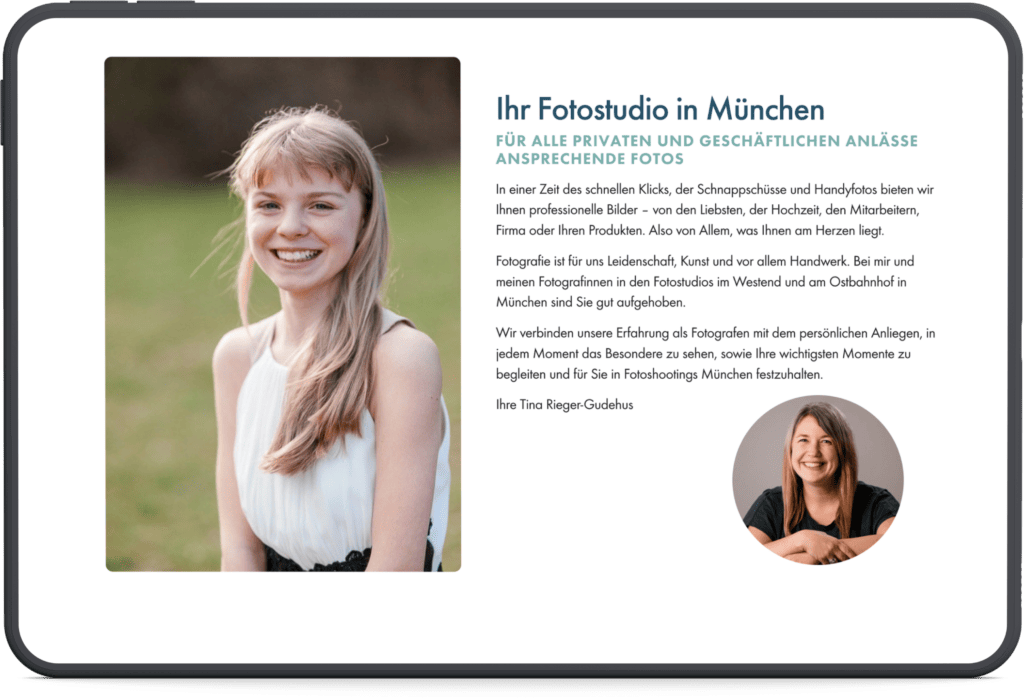Online Marketing Agentur
Heinrich Marketing
Wir sind Deine Online-Marketing-Agentur aus Starnberg bei München, die sich darauf spezialisiert hat, Deinen Umsatz durch maßgeschneiderte Online-Marketing-Strategien zu steigern. Mit unserem kleinen, aber hocheffektiven Team und jeder Menge Herzblut nehmen wir uns Deinen Herausforderungen an.
Wir bieten Dir alles von Webdesign über SEO bis hin zu Google- und Meta-Ads, abgerundet durch strategische Online-Marketing-Planung, Branding, Social Media Management und Foto- & Videoproduktion. Alles aus einer Hand und auf höchstem Niveau.

Andreas Heinrich
Marketing mit Herz und Klarheit!
für dich und deine Kunden.
Umfassende
Leistungen










Webdesign
Unsere über zehnjährige Erfahrung und mehr als 250 erfolgreich realisierte Projekte garantieren Designs, die perfekt zu deinem Business passen und mit ihm wachsen.









Meta Ads
Facebook & Instagram
Werbung
Wir schalten für Dich gezielte Facebook- und Instagram-Werbekampagnen mit präziser Zielgruppenauswahl und KPI-gesteuerter Optimierung, um außergewöhnliche Marketingergebnisse zu erzielen.

Google Ads
Als zertifizierte Google Partner Agentur aus München verbessern wir seit 2010 deine Google Ads Kampagnen, gestützt auf umfassende Erfahrungen mit einem Werbebudget von über einer Million Euro.
SEO
Auf
höchstem
Niveau
Strategie
Wir entwickeln umfassende Marketingstrategien, die über das klassische Online-Marketing hinausgehen, um die Sichtbarkeit Deiner Marke zu verbessern und den Umsatz zu steigern. Mit gezielten Werbeanzeigen und maßgeschneiderten Lösungen richten wir unsere Strategien präzise auf die Ziele Deines Unternehmens aus.

Branding
Wir entwickeln eine authentische und resonante Markenidentität, die Deine Kernwerte klar kommuniziert und überzeugt. Daraus entstehen starke Logos, ansprechende Schriftarten und Farben, die zusammen eine konsistente und überzeugende Identität über alle Kanäle bilden.
Social Media
Wir entwickeln maßgeschneiderte Inhalte für Plattformen wie Facebook, Instagram, TikTok und LinkedIn und nutzen kreative Ansätze, um natürliches Wachstum und gesteigertes Engagement zu fördern.
Foto & Video
Bilder und Videos sind im Online-Marketing entscheidend, um Aufmerksamkeit zu erregen und Botschaften schnell zu vermitteln. Sie sind besonders wichtig für Plattformen wie Meta, die vielfältiges visuelles Material erfordern. Entdecke ausgewählte Fotografie-, Video- und Drohnenprojekte aus unserem Portfolio.
#Teamwork

Die Heinis
Heinrich Marketing gibt es seit 2010 und Andreas ist Inhaber und Kopf der Agentur. Seit sehr vielen Jahren betreut Doris als Account Managerin Kunden in allen Bereichen. Caro arbeitet im Hintergrund und hält den Laden am Laufen. Der sichtbare Teil des Teams wird bei Bedarf mit Fachspezialisten ergänzt. Und da Bain & Company ihre Mitarbeiter Bainies nennt, sind wir folglich die Heinis 😉
Los geht's
Melde Dich gerne, wenn Du mehr über unsere Leistungen erfahren möchtest. Ich bin gespannt auf Deine Herausforderungen und freue mich auf ein persönliches Gespräch mit Dir.

Ich freue mich darauf, dich kennenzulernen.
Dein Andreas




